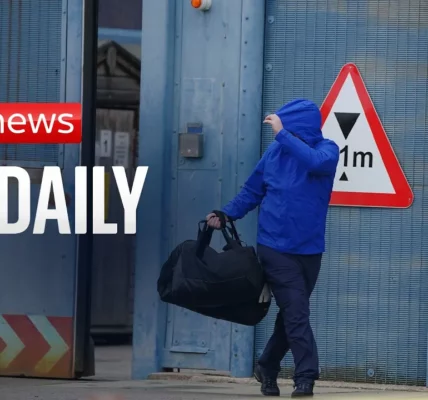Electoral Dysfunction: Analyzing the Current Political Landscape

In the wake of the recent election, the political landscape in the UK has shifted dramatically. This article explores the latest developments, featuring insights from key political figures, including Emily Thornberry. We will examine the implications of the King’s Speech, the safety of politicians, and the evolving dynamics within the Labour Party.
Introduction
Only weeks after the recent election, the UK finds itself in a whirlwind of political activity. As the Labour Party, now under the leadership of Keir Starmer, begins to implement its agenda, the ramifications of these changes are felt throughout the political sphere. With notable events such as the King’s Speech and the ongoing discussions about MP safety, we aim to unravel the complexities of contemporary UK politics. This piece will draw from a recent podcast discussion featuring Emily Thornberry, a prominent Labour MP, who shares her perspectives on these pressing issues.
The King’s Speech and Legislative Agenda
The King’s Speech, a ceremonial event marking the state opening of Parliament, provided a platform for the government to outline its legislative priorities. This year, the speech was marked by the introduction of an unprecedented 40 new bills, signaling a proactive approach from the Labour government. The following subsections will delve deeper into the significance and implications of this speech.
Overview of the King’s Speech
Traditionally, the King’s Speech sets the legislative tone for the upcoming parliamentary session. In contrast to previous years, where an average of 20 bills were introduced, this year’s figure indicates a bold strategy aimed at swift governance. Key areas addressed included:
- Planning reform
- Education policies
- Railway nationalization
- Economic stability initiatives
Impact of the Legislative Agenda
The ambitious nature of the proposed bills reflects a Labour government eager to enact change. However, the challenge lies in effectively passing these bills through Parliament. Emily Thornberry emphasized the need for collaboration across party lines to ensure that key issues, such as housing and public health, are adequately addressed.
The State of MP Safety in the Current Climate
Following a troubling assassination attempt on a political figure in the U.S., discussions surrounding the safety of politicians in the UK have gained urgency. Thornberry noted that this recent election cycle has seen an uptick in harassment and intimidation, particularly targeting women and minority MPs.
Incidents of Intimidation
Thornberry shared her personal experiences of intimidation during the election, highlighting a distressing trend where aggressors seek to film and provoke politicians for social media. Such behavior not only undermines the democratic process but creates a hostile environment for public service.
Proposed Measures for Improvement
In light of these challenges, Thornberry advocates for stronger measures to protect MPs from harassment and violence. She suggests that public awareness campaigns can help mitigate the issue by promoting respect for politicians as individuals dedicated to serving their communities.
Conclusion
The current political landscape in the UK is characterized by rapid change and significant challenges. The King’s Speech has set a bold legislative agenda, yet the path to success involves navigating complex parliamentary dynamics and ensuring the safety of elected officials. As discussed, the voices of experienced politicians like Emily Thornberry are crucial in guiding the Labour Party and shaping the future of UK governance. Moving forward, it is essential for citizens to engage with these developments and advocate for a political environment that is both progressive and respectful.
For readers interested in further exploring the topics discussed, we recommend checking out our related articles on the impact of the King’s Speech on UK governance and MP safety initiatives in the UK Parliament.
“`




